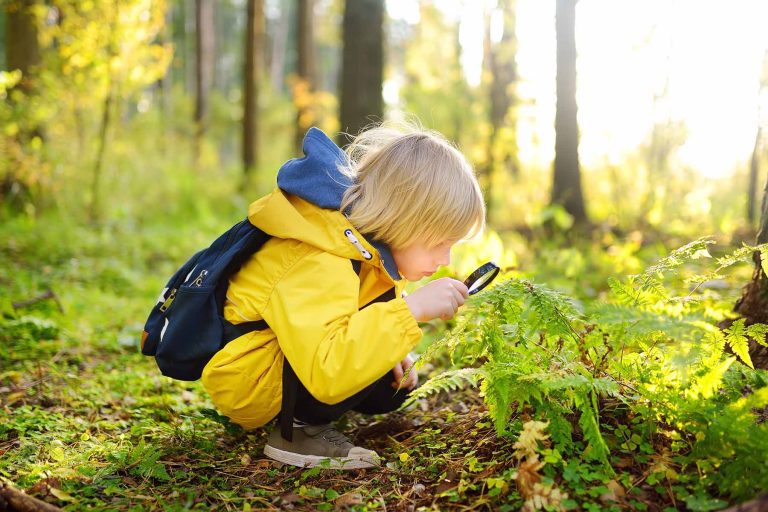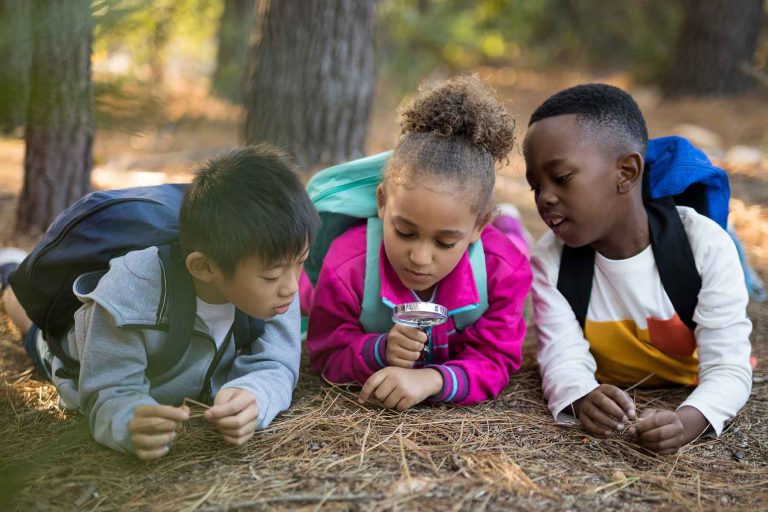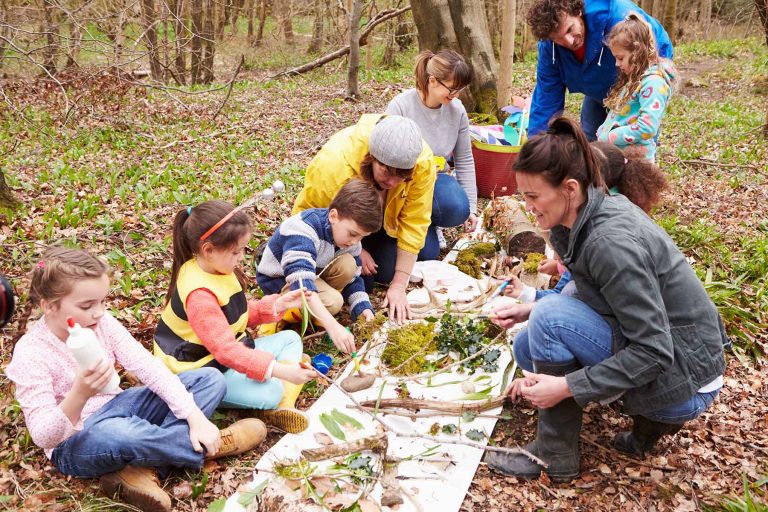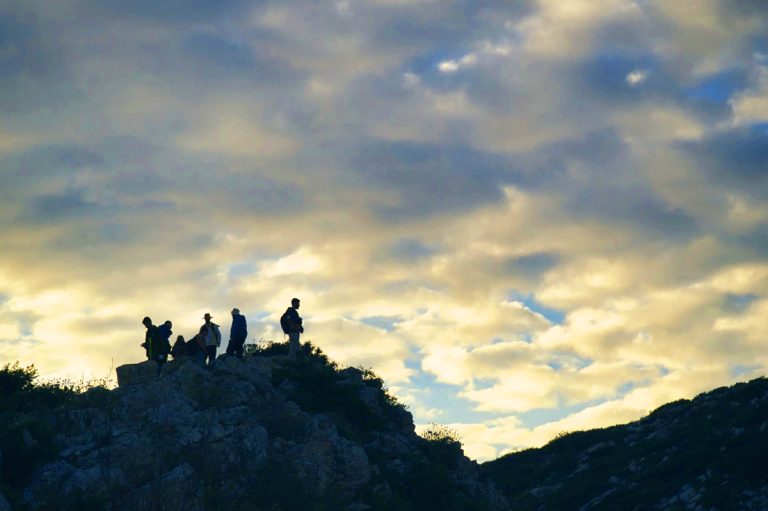Outdoor School Funding Adds to Efforts to Boost Outdoor Programs in Washington, the Pacific Northwest, Singapore, Australia, and Around the World

In March of 2022, Washington state, USA passed legislation establishing a state-wide Outdoor School program. Ten million dollars were allocated to fund outdoor school trips for the 2023 academic year.
Outdoor school provides environmental education, helps develop critical thinking and problem-solving skills, and supports socio-emotional learning in students.
Washington’s Governor Inslee, a graduate of outdoor school himself, whose father led outdoor education programs, said he hopes outdoor school can inspire kids to pursue environmental careers, which will help address the challenges of climate change.
Currently, 90 percent of Washington kids don’t participate in Outdoor School, mostly due to financial limitations. To send all Washington students to a full week of Outdoor School, $50 million is needed annually. The Washington Outdoor School Consortium, which advocated for the legislation, is pushing for increased funding in next year’s budget. Full funding will help reduce currently inequitable access to outdoor school opportunities.
Proponents say Outdoor School, typically a multi-day residential camp for students in 5th and 6th grade, brings numerous important benefits:
- Improved graduation rates
- Improved behavior in school and relationships with peers
- Higher academic achievement
- Critical thinking skills
- Direct field experience with scientific concepts
- Leadership and collaboration skills
- A deeper engagement with learning, place, and community
Washington State: A Leader in Outdoor Education
The first outdoor school in the USA was in Washington state, established in 1939. The first Outdoor Environmental Education Supervisor in the USA was also appointed in Washington, in 1969.
However, only more affluent communities could afford to provide outdoor education to students.
Viristar’s Director, Jeff Baierlein, was appointed to the Washington State Governor’s Council on Environmental Education in 2002. That group worked to establish state-wide implementation of environmental education curriculum. Although advances were made, funding to support state-wide environmental education programming was not allocated by the legislature.
Now, with dedicated funding, and the expectation for increased allocations to be disbursed by the newly established Outdoor Schools Washington to schools and school districts, Washington continues to show progress towards providing high-quality outdoor and environmental education to all Washington students. “This is going to allow all kids to have that access,” Governor Inslee said, “not just the lucky ones.”
Washington State: Also a Leader in Forest Schools
Outdoor early learning (preschool) programs have existed in Washington state since the early 2000s—and for decades in the Nordic countries and western Europe, where the first forest school opened in Germany in 1904, to provide a healthier environment for youth struggling with tuberculosis and unhygienic tenement life. (And, of course, for thousands of years before that, all learning was outdoors.)
But until recently in Washington state, early learning regulations focused on indoor programming rather than supporting outdoor activities; safety and quality standards for outdoor-based early learning experiences were not well-established, and funding was limited.
The Washington Nature Preschool Association, a volunteer-driven collaborative, set out to change that.
WaNPA partnered with the North American Association for Experiential Education (NAAEE), its Washington affiliate E3 Washington, and the Natural Start Alliance.
The result was that Washington state, in 2019, became the first US state to license outdoor, nature-based preschools, furthering the development of the nature preschool/forest kindergarten movement, which has been rapidly growing in the USA. The licensure program began after two years of preparatory work following 2017 state legislation requiring the establishment of regulations to support licensure of “outdoor, nature-based early learning and child care programs.”
Two years later, in 2021, legislation passed to make the licensure system, which had initially started as a four-year pilot program, permanent.
The licensing system provides 84 pages of detailed standards for “outdoor nature-based child care.”
The standards include a requirement to encourage children to engage in active play for at least 30 minutes every three hours, and limits on screen time to not exceed 2 ½ hours per week.
Risk Management
Safety standards are also included in the licensing system, addressing:
- Staff qualifications, including “thirty hours or three credits of nature-based education training,” and Wilderness First Aid training
- Written policies on outdoor nature-based risk assessment
- Inspection of natural materials and related hazard mitigation, such as removal of broken limbs from climbing trees
- Access to shaded areas
- Access barriers to hazardous features such as a cliff or water body
- Explicit permission for children to climb natural features such as trees or boulders
- Permission to use camp stoves, sharp tools, and campfires, under certain conditions
- A requirement that natural features or challenge courses more than 4 feet off the ground meet Association for Challenge Course Technology standards, and that staff have current ACCT Practitioner certification
- Clothing for wet and cold weather
- Tick checks
- Sunscreen use
- “Backcountry toileting”
- Leave No Trace standards
- Procedures for managing exposure to bee stings, toxic plants and fungi
- Procedures for serving eggs laid on-site in a coop
- Outdoor kitchen safety requirements
- Active supervision in hiking, water-based, campfire and climbing activities
- Campfire building, management and extinguishment
- Observing for hazardous weather such as lightning, temperature extremes, flooding, and strong winds
- Emergency preparedness plan for natural disasters and other emergencies
- Risk management plan to cover topics including wildlife, foraging, missing children, & seasonal changes to hazards
The standards support “risky play,” also referred to as “adventure play,” noting that in risky play, a child can recognize and evaluate challenge, and decide on a course of action, although there is the potential for injury.
The standards note that in this context, “risk can be necessary and beneficial to healthy child development.” This is a remarkable turnaround from the previous preschool regulations, which prohibited elements of risky play, like tool usage and fire building.
Equity and Inclusion
The standards also support diversity and belonging, for example by requiring:
- Materials that represent all children, families and local Native American tribes by providing, for example, dolls that do not reinforce stereotypes, and materials representing a balance of different culture groups, abilities, family styles and genders
- Procedures for dual language learners
- Intervention to stop biased behavior
Before the legislation was passed, outdoor pre-schools weren’t permitted to offer full-day programs, which is important for many working families. And unlicensed schools couldn’t offer government-based financial assistance to deserving families.
The legislation authorizing outdoor nature-based (ONB) child care now makes available state and federal funding, increasing ONB accessibility to low-income families. And it aligns with the Washington State Department of Children, Youth, and Families’ Strategic and Racial Equity Plan, which aims to implement liberatory design, equitable programs, and anti-racism work to eliminate racial disproportionalities.
As many families lack access to outdoor and nature-based experiences due to socioeconomic and racial inequities, the licensure program explicitly aims to expand access and reduce those inequities.
Outdoor Preschool and You
If you are interested to advocate for outdoor preschool in your community, the Outdoor Preschool Policy Action Framework, developed by the Willamette Partnership’s Oregon Health & Outdoors Initiative, can help you move your US state or other jurisdiction towards licensure and improved support of nature-based and outdoor preschools.
The Initiative also provides an Outdoor Preschool Equity Toolkit, which provides practical guidance for fostering equitable access to nature-based and outdoor preschools.
Washington State: A Leader in Environmental Protection
Washington created the first government environmental agency in the USA. The state’s Department of Ecology was established in 1970, even predating the US Environmental Protection Agency.
The Department of Ecology, whose mission is to protect, preserve, and enhance the environment for current and future generations, served as a model for many states as they looked to develop their own environmental protection agencies.
Its first year, the agency worked with legislators to pass the landmark State Environmental Policy Act, as well as legislation on litter control and shoreline management.
Today, Ecology’s focus includes work on responding to climate change, protecting endangered orca whales, and establishing environmental justice practices to address long-standing inequities with over-burdened communities of color, economically disadvantaged communities, and indigenous communities.
Research Suggests Numerous Benefits of Exposure to Green Space for Kids
Danish research shows that growing up in urban environments is associated with up to 55% increased risk of developing psychiatric disorders, and green space during childhood is associated with better mental health. Earlier research suggests that greenness is protective against cardiovascular disease and mortality.
In Washington state, initial research at a licensed outdoor preschool found a significant drop in the percentage of kids who were overweight, compared to kids at indoor preschools. A five-year follow-up study is currently underway.
In addition to improved physical and mental health, research indicates exposure to green space is associated with improved cognitive development in children, including with superior working memory and reduced inattentiveness.
At the same time, kids are spending less time outdoors than ever before. In the UK, the amount of time kids spend outside has dropped by half in just a generation, and in Australia, a generation ago 73% of children’s play was outdoors, compared to 13% now.
This is attributed to a number of factors, including the rise of electronic screen-based activity, increased urbanization, and safety concerns driven by sensationalized media stories about child abductions and similar risks, as well as other issues.
Outdoor Education For All, Around the World
Oregon
Washington, where Viristar has for years provided trainings, primarily in outdoor safety and wilderness medicine, to leaders of outdoor programs at the state’s K-12 schools, has reason to be proud of its history of supporting outdoor education. However, Washington’s neighbor to the south has, in some ways, done even more.
Oregon has had outdoor school programs since 1957, but they were not accessible to all. In 2016, the state established and fully funded a statewide Outdoor School program for all Oregon 5th and 6th grade students, shifting participation in outdoor school from a privilege to a right. (Some students, particularly those attending independent schools, aren’t currently eligible for state funding.) Participation in Outdoor School is not mandatory for schools, but the overwhelming majority of schools participate.
Oregon schools and school districts have access to safety guidance and other resources to help them establish their own outdoor school program.
Australia
Australia has a particularly strong culture of outdoor education.
Outdoor learning is established as one of seven curriculum connections in the official Australian Curriculum established by the Australian Curriculum, Assessment and Reporting Authority, meaning that the out-of-doors and outdoor education can be used as a method for delivering physical education, social science, geography, science and other learning areas of the Australian Curriculum.
Outdoor Education Australia is the peak body representing outdoor education nationally, and provides strategic oversight, policy advice and operational support for a host of activities related to outdoor education within Australia.
Most outdoor education in Australia is provided by nonprofits, with federal, state and local government support providing about 25 percent of program funding.
Victoria: A Leader in Outdoor Education in Australia
Each state in Australia has its own approach to outdoor education. Victoria, in the country’s southeast, has embraced outdoor education more fully than others.
Outdoor excursions in Victorian schools began with enthusiastic teachers leading students on extended bushwalks in the 1930s. The first outdoor camps were established by grade schools in Victoria in the 1940s.
Outdoor education was incorporated into the curriculum in Victoria in 1989, and the 1992 introduction of the Victorian Certificate of Education (VCE) Outdoor Education, now VCE Outdoor and Environmental Studies, expanded the integration of outdoor education in Victorian schools. (The VCE is roughly equivalent to a high school diploma in the USA, or the GCSE in the UK.) An outdoor recreation VCE began in 2021.
In addition to having outdoor education an explicit part of the public school curriculum, Victoria’s Department of Education and Training (DET) also funds and operates five residential outdoor education schools, serving 16,000 students annually. Four of the schools are operated by the government’s Residential Outdoor Schools Association across seven campuses. Outdoor education programs must follow detailed safety guidelines determined by the DET.
An active outdoor industry association, Outdoors Victoria, advocates on behalf of the outdoors sector, facilitates work on the globally renowned Australian Adventure Activity Standard and related Good Practice Guides, and supports research.
Some of the entities supporting outdoor education in Victoria, Australia
Outdoor Education in Other Australian States
Other Australian states, although they have not formally adopted outdoor education into the public school curriculum in the way Victoria has, also offer government-organized outdoor education camps. The New South Wales Office of Sport, for example, operates ten Centres with a total capacity of over 2,600 persons, providing outdoor education and other programs for public schools. About a third of all grade 4-10 students go to outdoor education camp each year.
In addition to well-developed curriculum, the camps have a variety of safety procedures in place, and an NSW Office of Sport Project Officer who graduated from Viristar’s Risk Management for Outdoor Programs training has been using Viristar’s curricular materials to improve the safety operations of the NSW camps.
Singapore
Singapore has done more than perhaps any nation in the world to support outdoor education in public schools.
The country’s National Outdoor Adventure Education Master Plan calls for all public school students to have three multi-day outdoor education experiences in primary and secondary school, culminating in a 5-day expeditionary programme for all Secondary 3 (14-15 year old) students. The government owns and operates a group of outdoor education campuses where these programs are based, and provides all the necessary funding so every single public school student in the entire country has these outdoor education experiences.
The government conducts many of these outdoor education programs itself, but also hires private providers to conduct them. Independent outdoor education providers recently created an organization, the Outdoor Learning & Adventure Education Association, which has established safety and quality standards to which all members agree to conform.
Nature: Not Just for Kids
Time out-of-doors is not just good for kids. Nature brings enormous physical and psychological benefit to people of all ages, including adults.
More than 10 years ago, a nature prescription program was established in the US. In 2020, Canada’s first nature prescription program launched. The British Columbia Parks Foundation, which brought the PaRx program to life, noted how research suggests that spending time in green space boosts immune function and life expectancy, and lowers the risk of developing heart disease, diabetes, obesity, depression and anxiety.
The BC Parks Foundation also noted the economic benefits—for instance, saving an estimated £2 billion in medical treatment costs in the UK with universal access to green space, and an astounding $6 trillion economic value of protected areas globally through improved mental health of visitors.
(The BC Parks Foundation also recognizes the importance of safety in park activities; a Manager in the Foundation’s Discover Parks program completed the Risk Management for Outdoor Programs training from Viristar, helping the Foundation improve safety management of park-based experiences.)
Canada’s nature prescription calls for at least 2 hours a week spent outdoors. Parks Canada joined the effort, providing free access to any of Canada’s 38 National Parks (normally $72) as part of the nature prescription offered by a physician.
It’s estimated that over 100 park prescription programs operate in dozens of US states, including an informal program in Washington state in collaboration with Washington State Parks, where the Department of Health is also working on formal Parks Rx legislation which would create a funded statewide program including support for insurers to offer financial incentives to employers based on employees spending time in nature.
Nature prescriptions are available in Scotland, and Shinrin-yoku (森林浴), or forest bathing, is long-established in Japan, the term being coined by the Japanese Ministry of Agriculture, Forestry, and Fisheries in 1982.
And many are aware of the Scandinavian concept of friluftsliv, or open-air living, which recognizes the well-being benefits of everyday outdoor time and connection to nature. The term, coined by the Norwegian playwright Henrik Ibsen in the 1850s, reflects an ethos that has been part of Norway’s culture for centuries.
In Norway, outdoor recreation is commonplace, an undergraduate degree in friluftsliv is available, and public libraries lend outdoor gear. Friluftsliv is also integrated into Norway’s friluftsbarnehager, or outdoor kindergartens, where kids are outdoors some 80 percent of the time.
The Critical Role of Government
Action at the government level is important to support high quality outdoor education and outdoor recreation experiences.
Governments have the capacity to influence large populations, invest significant sums towards specific public policy aims, and create law and regulation to compel action.
This is true even in countries like the USA and Australia, where big corporations have obtained enormous political power.
Safety, Quality, and Environmental Impact
Government regulation has been successfully implemented to improve risk management and environmental protection with organized outdoor activities in India, Switzerland, Finland, New Zealand, Canada, the UK, and Australia. And to achieve real environmental sustainability—a goal of any environmental education program—legislative and regulatory action is essential.
Regulation can broadly influence safety outcomes in outdoor experiences, including the hazards of outdoor activity rapidly increasing due to climate change, from wildfire to flooding and heat-related illness.
Viristar has provided multi-day environmental education curriculum development training to representatives of government agencies such as the Taiwan Forestry Bureau and the National Parks Division of Taiwan’s Ministry of the Interior, as well as leaders of outdoor programs in New Zealand, Singapore, Vietnam, Hong Kong, and the USA. The training, in alignment with NAAEE’s Guidelines for Excellence, emphasizes the need for learners to build knowledge and skills to be able to take action to effectively address environmental issues, including complex issues such as climate change, where government regulation is an essential part of the solution.
Equity and Inclusion
Governmental action is also important to reduce systemic inequities in access to outdoor education and the out-of-doors.
The UK government pledged £10 million to schools to help children get close to nature, as part of a 25-year environmental improvement plan, although critics noted it’s insufficient to meet the need.
“Green inequity” is recognized as a part of environmental injustice, with green space access—and its wellness benefits—increasingly limited to those in privileged income, education attainment and racial groups, in locations from the USA to Australia and the UK. Public policy—from land use planning and licensing, to funding outdoor kindergarten and enabling access to Outdoor School—is needed to address this inequity.
Conclusion
Outdoor educators across Washington state celebrated the recent legislative establishment of a funded Outdoor School program. Washington joins other jurisdictions in creating government policy and dedicated funding to support high quality, equitably accessible outdoor experiences with good safety, recreational, and education outcomes.
Washington can now look to other regions, from Oregon to Singapore, for next steps in making the benefits of outdoor experiences available to all.
Viristar is proud to have collaborated with Washington state schools, outdoor education providers, and government agencies on multiple continents to support equity, safety, and programmatic excellence in environmental education and outdoor programs around the world.






